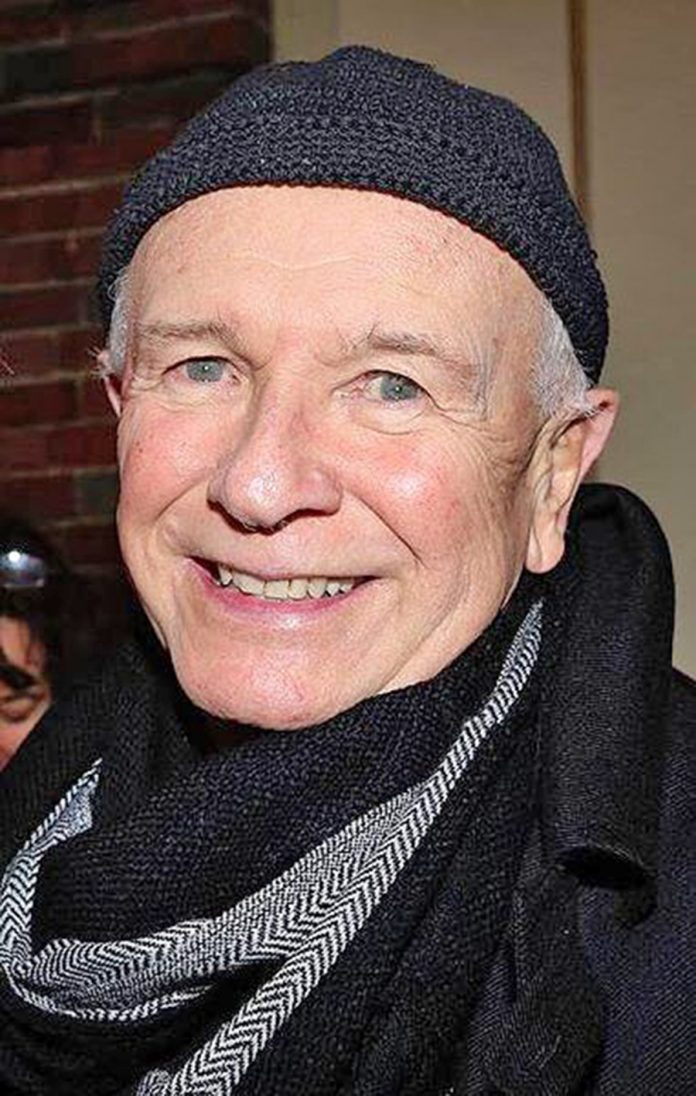Terrence McNally, a prolific and successful playwright with a longstanding connection to Philadelphia, died on March 24, at 81. The cause was complications arising from COVID-19, also known as the novel coronavirus.
McNally’s publicist Matt Polk announced his death, which occurred in Sarasota, Florida. McNally had chronic obstructive pulmonary disease and was a lung cancer survivor.
In a career spanning nearly 60 years, McNally wrote more than 30 plays, as well as librettos for ten musicals and four operas. He received five Tony Awards — including back-to-back statues for Best Play, in 1995 and 1996 — as well as three Drama Desk Awards, two Obies and an Emmy. He was a finalist for the Pulitzer Prize for Drama in 1994 and was inducted into the American Theater Hall of Fame in 1996.
Although he never called Philadelphia home, McNally forged a strong professional relationship with the local theater community. Philadelphia Theatre Company (PTC) staged the world premieres of four McNally plays, including “Master Class,” which opened at Plays & Players Theater on March 1, 1995.
“Master Class,” which starred Zoe Caldwell as opera legend Maria Callas and Audra McDonald as a promising but challenging student, transferred to Broadway’s John Golden Theatre on Nov. 5, 1995, where it ran for 598 performances. The production won three Tony Awards: Best Play, Best Actress in a Play (Caldwell) and Best Featured Actress in a Play (McDonald).
Other McNally plays that received their first mountings at PTC include “Some Men” (2006), “Unusual Acts of Devotion” (2008) and “Golden Age” (2010). In 2011, the company established the Terrence McNally New Play Award, which bestows a $10,000 prize on “a new play that celebrates the transformative power of art.”
“Terrence’s impact on Philadelphia Theatre Company is immeasurable,” said Paige Price, PTC’s producing artistic director. “He set a standard for other writers to aspire to, and Sara Garonzik [PTC’s former artistic director] gave him the single most important thing to a writer: an artistic home. An artist can share their work in a very deep way when they are part of a theater company — and that goes for the audience, too.”
Philadelphia-based dramaturg Heather Helinsky worked on PTC’s production of “Golden Age” in the early days of her career. “At first, I was concerned about McNally’s famous comment that a dramaturg can do more harm than good,” Helinsky told PGN. “However, Terrence and his husband Tom Kirdahy were kind, generous and collaborative to a fault. I learned so much. Among other things, he taught me that ‘the play is a piece of music: it needs allegros, andantes, pianissimos, fortissimos, shape’.”
McNally was born on Nov. 3, 1938, in St. Petersburg, Florida. His parents, Hubert and Dorothy McNally, operated a beachside bar and restaurant there. After stints living in Port Chester, New York, and Dallas, he spent the majority of his childhood and adolescence in Corpus Christi, Texas. He earned a B.A. in English from Columbia University in 1960.
Long before overt gay themes were commonplace in commercial theater, McNally wrote forthrightly about LGBTQ issues from a queer perspective. His 1975 Broadway hit “The Ritz” depicted New York City bathhouse culture with humor and frankness.
As the HIV/AIDS epidemic swept through the country in the 1980s and ‘90s, McNally turned his attention to how the disease both ravaged the community and brought people together. “Love! Valour! Compassion!,” about a group of eight gay men sharing a summer home in upstate New York, won the 1995 Tony Award for Best Play.
“Andre’s Mother,” a teleplay crafted for the PBS American Playhouse series in 1990, chronicled the rocky relationship between the surviving spouse of an AIDS casualty and his conservative mother. It won McNally an Emmy for Outstanding Writing of a Miniseries, Movie or Dramatic Special.
In 2013, McNally penned a stage sequel to “Andre’s Mother,” “Mothers and Sons,” which premiered at Bucks County Playhouse in New Hope before moving to Broadway. PTC presented its own production, starring Michael Learned, in 2015.
His controversial play “Corpus Christi,” which premiered Off-Broadway in 1998, reimagined Jesus and his apostles as a group of contemporary gay men. It was met with widespread protest and threatened with cancellation; McNally received death threats.
“Some Men,” which played at Second Stage Theatre in New York after its Philly premiere, was constructed of vignettes depicting gay life from the 1930s through the present day. The Stonewall uprising, AIDS crisis and then-nascent marriage equality movement factored prominently in the drama. Writing for CurtainUp Philadelphia, critic Kathryn Osenlund described the play as “a moving and funny encyclopedia of relationships … a lush, mixed bouquet of sex, pain and laughs.”
McNally was also a passionate opera lover, and the relationship gay men have with the genre was a frequent subject of his writing. “The Lisbon Traviata,” from 1989, focused on a coterie of obsessive Maria Callas devotees. “Golden Age” had legendary composer Vincenzo Bellini and soprano Maria Malibran as characters.
As an opera librettist, McNally collaborated with composer Jake Heggie on “Dead Man Walking” (2000) and “Great Scott” (2015). He won additional Tony Awards for his books for the musicals “Kiss of the Spider Woman” (1993) and “Ragtime” (1998).
Despite ill health, McNally remained prolific in his final years. He wrote the book for the Broadway musical “Anastasia” in 2017. His final play “Fire and Air,” about the relationship between ballet legends Serge Diaghilev and Vaslav Nijinsky, premiered Off-Broadway in 2018.
To celebrate his 80th birthday last year, his classic play “Frankie and Johnny at the Clair de Lune” was revived on Broadway, starring longtime collaborator McDonald and Michael Shannon. He also received a special Tony Award for Lifetime Achievement in the Theatre in 2019.
McNally’s survivors include his husband, Tom Kirdahy; brother and sister-in-law, Peter and Vicky McNally; nephew Stephen McNally and his wife Carmen; great-niece Kylie McNally; and mother-in-law Joan Kirdahy.
